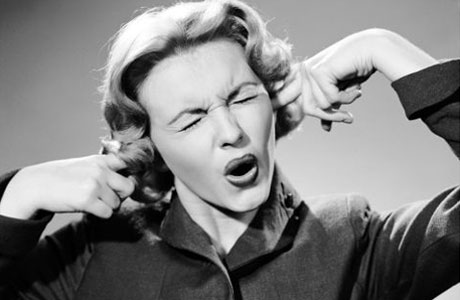For people who feel that the recent presidential election suffered from irregularities serious enough to have changed the outcome, perhaps the most frustrating aspect of how it’s playing out is the way courts have refused to allow any evidence to be presented at trial allowing people who are happy with the outcome to blithely proclaim that ‘there isn’t any evidence’, or that ‘the evidence has been rejected by the courts’.
It’s similar to when a child covers his ears and shouts ‘La la la la I can’t hear you!’ as a way of preventing you from telling him something that he doesn’t want to hear.
The official judicial term for this technique is denial of certiorari. This term comes from the Latin phrase certiorari volumus, which means ‘we wish to be made certain’. The natural inference is that a court ‘denies cert’ when it does not wish to know what’s going on, and by extension, doesn’t want anyone else to know what’s going on. Which certainly seems to be the case here.
Normally, when the highest available court denies cert, that’s the end of the matter — but only because people have come to confuse delegated powers with monopolies.
To see the difference, imagine that you’ve hired someone to maintain your garden for you. You could do the work yourself, but you lack the time, or the desire, so you engage someone else to do it for you. That’s a delegated power.
Now imagine that your gardener forbids anyone else — including you! — to do any work in your garden, or make any decisions about what work ought to be done. That’s a monopoly.
If you consider a few examples like this, you’ll quickly see that delegating a power does not, and cannot, confer a monopoly.
It’s ludicrous to think that if I delegate to government the power to do something on my behalf — whether that’s coining money, or organizing post offices, or arresting criminals, or defending me and my property, or handing out certificates of competence, or hearing evidence and drawing conclusions — I give up the power to do that thing myself.
I might choose to refrain from doing that thing, when things appear to be going well, just to avoid muddying the waters. But I can equally choose not to refrain, when things are clearly going badly.
So those who feel that there is evidence that needs to be heard can and should hold trials where it can be presented, and examined, and cross-examined, and possibly explained away. These trials could follow the same rules as the ones held by the government, except the judges would not be able to issue subpoenas, or force parties to turn over materials for discovery, or impose penalties.
But that’s okay. Because they would be, as the media like to say derisively, trials in the court of public opinion. Participation would be strictly voluntary. If you don’t want to show up to present your side of the story, you don’t have to.
(For example, if a hacker presents a live demonstration of how to hack into your voting machine, and you don’t want to show up to explain how that couldn’t have happened, that’s your choice.)
The point isn’t to punish. The point is for the public to grant cert — to follow through on its wish to be made certain — by getting the relevant evidence and testimony (including cross-examination of witnesses) on record, where people are free to examine it.
If the courts wish to bury their heads in the sand, it doesn’t require everyone else to start digging.
People have been trained to recoil from the phrase ‘court of public opinion’, with its implications of unfairness and one-sidedness. But concerns about one-sidedness are valid only when the government plans to hold a trial in which both sides of a case can be heard.
When that isn’t the case — as where the election is concerned — setting up a formal court of public opinion may be the only avenue that remains for pursuing the truth. This is especially true where traditional and social media behemoths have aligned themselves with one of the sides, effectively abdicating their traditional function of serving as informal courts of public opinion.
JFK once said that those who make peaceful revolution impossible will make violent revolution inevitable. In a similar spirit, those who make official adjudication impossible make unofficial adjudication essential.
Although anyone could set up such a court, GOP leadership in Congress is going to have a lot of time on its hands over the next couple of years, as the Democrats push through their agenda without the need to consult the GOP. They could use that time productively by setting up courts of public opinion to look into the election… and a number of other things.
